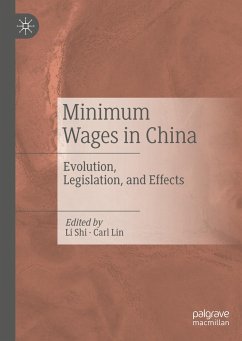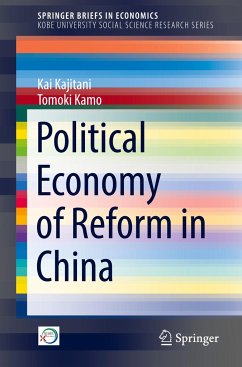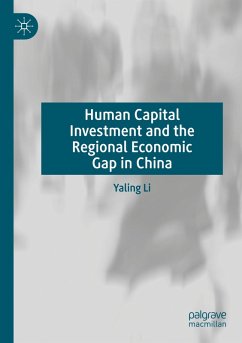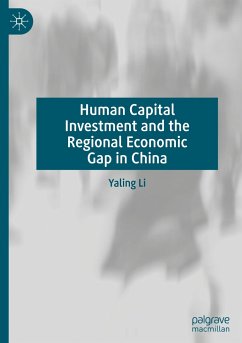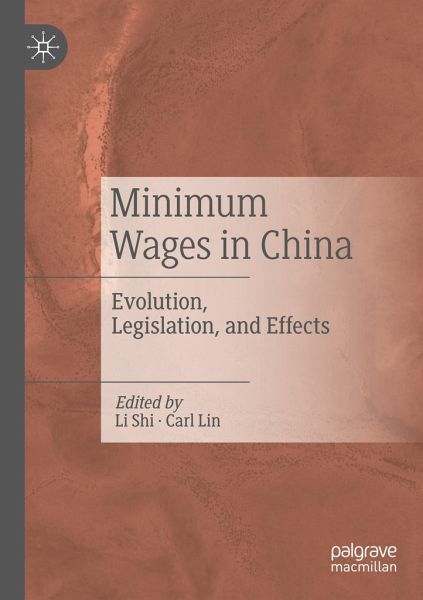
Minimum Wages in China
Evolution, Legislation, and Effects
Herausgegeben: Li, Shi; Lin, Carl
Versandkostenfrei!
Versandfertig in 6-10 Tagen
113,99 €
inkl. MwSt.

PAYBACK Punkte
57 °P sammeln!
This book considers the positive and negative impacts of the minimum wage policy in China. Since China enacted its first minimum wage law in 1994, the magnitude and frequency of changes in the minimum wage have been substantial, both over time and across jurisdictions. The results from China's experience show that rapidly increasing minimum wages have helped increase average wages and reduce the gender wage gap, income inequality, and poverty. However, the fast-rising minimum wage has also resulted in the loss of employment for young adults, women, low-skilled workers, and migrant workers. Add...
This book considers the positive and negative impacts of the minimum wage policy in China. Since China enacted its first minimum wage law in 1994, the magnitude and frequency of changes in the minimum wage have been substantial, both over time and across jurisdictions. The results from China's experience show that rapidly increasing minimum wages have helped increase average wages and reduce the gender wage gap, income inequality, and poverty. However, the fast-rising minimum wage has also resulted in the loss of employment for young adults, women, low-skilled workers, and migrant workers. Additionally, higher minimum wages have a negative impact on firm profitability and adverse effects on firm's human capital investment. In summary, the Chinese minimum wage policy has shown both positive and negative impacts on the affected workers. Through unpacking these findings, the book highlights the importance of rigorous research to inform evidence-based policymaking and provides lessons forother transitional and developing economies.





